Everyone knows the liberal arts are dying. The traditional subjects of the classical academy: rhetoric, logic, grammar, arithmetic, geometry, astronomy and the theory of music, were at the core of ancient Greek and Roman society, but aren't practical fields of study today. With a volatile global economy, rising student debt, and a digital future upon us, it doesn't make sense to pursue these antiquated fields, or even their modern iterations: the visual and performing arts, English, foreign languages, history, anthropology, sociology and philosophy. Science, Technology, Engineering and Mathematics (STEM) are where the careers are. Or is that just a myth?
THINK LIBERAL ARTS MAJORS CAN'T GET A JOB? THINK AGAIN.
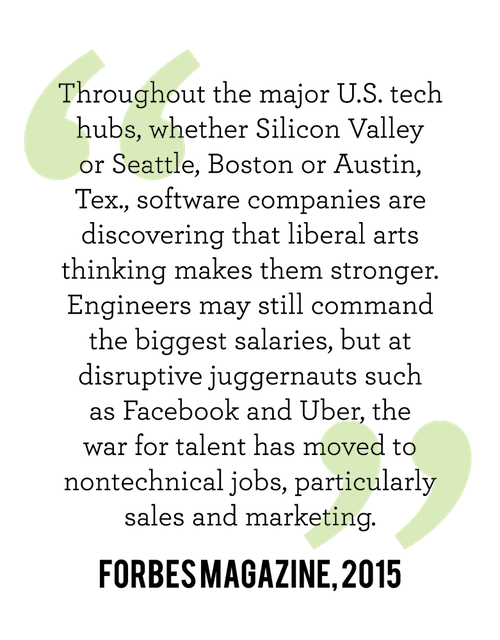
Even tech firms are suddenly scrambling for graduates who can communicate, problem solve, and market the products. Sure, computer scientists can build hardware and software. But someone has to think about the ethics of a given technology, view it in the context of different societies and cultures, design the product and packaging, write everything from the instruction manual to the script for the commercials, score the soundtrack for the viral ad campaign, shoot the video and photos, and sell it to a worldwide audience. There are a whole lot of people behind that iPhone you use, and they're not all computer science folks.
But still, the myths persist, and the pressures on high school students to find a high-paying job as soon as they graduate are tremendous. Here are the most common misperceptions of liberal arts majors and a breakdown of how valuable these degrees really are, as well as what UAB is doing to ensure our students find careers that are right for them.
While these myths (and the realities) apply to all of the arts and humanities, we've focused on English as a representative major. We talked to Dr. Daniel Siegel, Associate Professor in the Department of English, Elizabeth Simmons, Assistant Director in Career and Professional Development (Liberal Arts, Public Health and Nursing), and recent graduates Kayla McLaughlin and Brodie Foster.
MYTH 1: THERE AREN'T ANY JOB OPPORTUNITIES FOR LIBERAL ARTS MAJORS
Daniel Siegel: If English was ever an impractical major, it looks to me like those days are gone. English majors are a natural fit for jobs in media and communication, marketing, public relations, corporate training, and research and analysis. English is also great preparation for pre-professional programs, including medical school.
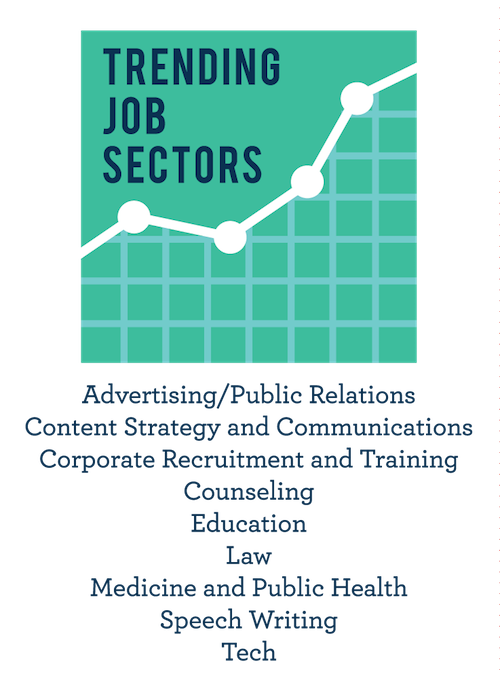
On the other hand, for English majors looking for lucrative careers, my sense is that their degree positions them to succeed in many industries and professions. They have talents that every employer needs. They know how to read carefully, write forcefully, do research, work creatively in independent directions, produce polished documents, engage in discussion and debate, understand different points of view, analyze cultural trends, and hear what people are saying.
Elizabeth Simmons: Employers tell us every day that they need people who can communicate, who can think critically, and who can problem solve. They're looking for blended skills—people who can deal with more complexity.
We know that careers are not linear. Our professional journeys have lots of twists and turns. And a liberal arts major is not a vocational degree. It's important to spend time exploring your options in college to decide what is meaningful to you and find out what you're good at. We're here to normalize the fact that not everyone knows what they want their career to be. Students tend to feel like everyone else has it together, but in fact they really don't. Take lots of classes, do several internships, work with your professors, your academic advisors and with our career counselors, and a path will emerge for you. Our liberal arts majors are in demand. They just need to learn how to sell themselves.
Brodie Foster: This is the myth that I find the most nonsensical, to be honest. I switched from a pre-med psychology track to an English degree and ultimately found that the soft skills I had been developing throughout my undergraduate degree could apply to a number of different fields—particularly digital media and content strategy, which is where I found my post-college job.
The way I always approached my career search was that through my liberal arts degree, I learned to be teachable and to communicate well. I knew that whatever career I pursued would come with hard skills that I might have to pick up, but my skills would be the ones that made me stand out to employers. Particularly because I work in the digital media industry, technology changes every few months but my ‘soft skills' in communication and creative conception can be applied to anything.
Kayla McLaughlin: There are a lot of creatives out there, but creatives are in high-demand. Such high-demand, in fact, that getting the jobs they want is highly competitive. Experience and determination separates the hired from the rejected. Use what you know to get what you really want.
MYTH 2: IF YOU DO GET A JOB, YOU'LL NEVER EARN ENOUGH TO JUSTIFY THE TUITION YOU SPENT ON YOUR DEGREE
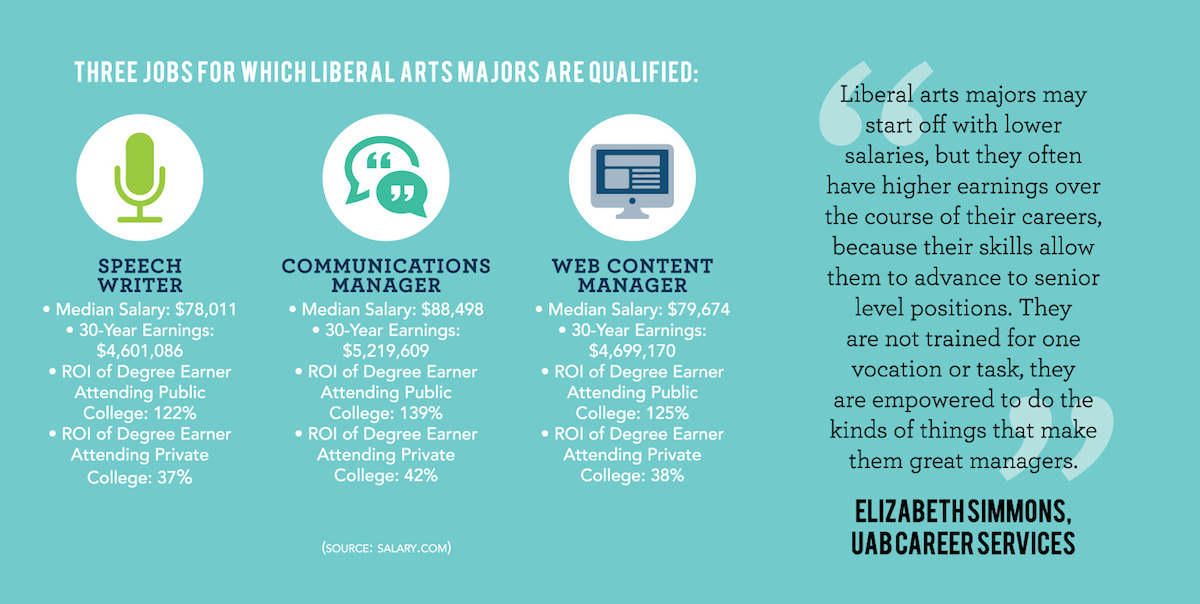
Elizabeth Simmons: If you go back to the original vision for a university education, these [liberal arts] majors were never designed to be vocational degrees. Our mission is to create whole human beings and citizens.
I think as the economic pressures have intensified, we have all—especially parents—shifted to a mentality that you should go to college to ensure a lucrative and stable career. That's certainly a part of it, but that approach can be detrimental to students who are not pursuing professional degrees. We encourage liberal arts students to start pinpointing their strengths and weaknesses early on, then we can help them start thinking about what they can do with their degree based on that assessment. We also encourage them to do as many internships as they can. It's being more self-aware and more intentional in their choices. Employers want to know they can come into a job and contribute immediately. When our students are able to do that, they are on track for a very successful career, regardless of their field.
Daniel Siegel: To students and parents, I'd say to choose a major based on what interests you and what you're good at. That's where you're going to make your contribution. Even if you want to be purely pragmatic in your decision about what to study, the most practical thing you can do is to build on your talents and talk to lots of people about how you can market and apply those talents. To those lucky enough to be good at different things, cultivate all of those talents in college. Get a double major, or at least take classes in different fields. It's that combination of skills, perspectives, and experiences more than your on-paper major that will set you apart in the working world.
Our goal is to help our students learn about options they haven't thought of, find some clarity about their own priorities, connect with the resources that UAB and the community have to offer them, and leave with confidence about the next step.
Brodie Foster: To be honest, I never really considered salary when I was looking at job options. I found that my heart was in storytelling and digital media and never really considered what kind of salary situation I would be in, but haven't been disappointed by what I've found. I always had more of the mindset that once I found what I was good at and what I loved, the salary would fall into place. I always knew that no matter what happened with my primary career goals, I would always have a set of marketable skills that would get me where I needed to be.
Kayla McLaughlin: I know many students—myself included—were able to acquire scholarships and grants that helped lessen that cost. Although I'm in an entry level position right now, I'll only get paid more from here. That has already justified the hard work I put into finding scholarships and graduating with honors.
MYTH 3: PEOPLE IN THE LIBERAL ARTS ARE IMPRACTICAL, IDEALISTIC ROMANTICS
Elizabeth Simmons: UAB students have real opportunities to add value to their degrees, and they are pursuing them. We have liberal arts students who take classes outside their majors to give them a few more skills that will make them marketable. Analytics or accounting classes in the School of Business, for example. The new Bachelor of Arts in Computer and Information Sciences is a fantastic new degree that will be a boon to a lot of students, because that is really what employers are looking for—that mix of skills. Liberal arts students who can code are incredibly attractive to employers.
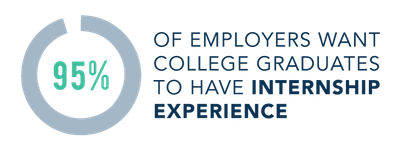
By the same token, we have students who are not liberal arts majors who are doing a minor in Professional Writing as a way to strengthen their communication skills. The students who can combine their courses and their skills are the ones who will have a path open up for them.
Daniel Siegel: We've got to get our own students enthusiastic about courses in other disciplines. The job environment is difficult for all students these days, and over the course of their working lives, most college graduates will change jobs frequently and may even change careers. So it's absolutely crucial that we push our students to circulate throughout the university—what you learn by taking challenging courses in different fields is much more important than what you learn in a major. The power of a university education is that it gets you to be intellectually flexible, and every employer will tell you that they want to hire people with a diversity of skills and interests. I really worry about the degree to which students, and to some extent faculty and advisors, treat the major as the point of college—it hurts our students when they go out into the world and have to navigate complex work environments.
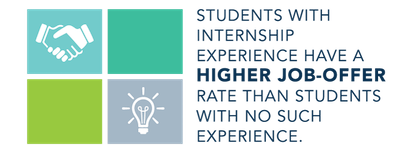 Our alumni also play an important role. They let us know what they're doing so that we can give current students a diverse and realistic picture of what kind of options they'll have after college.
Our alumni also play an important role. They let us know what they're doing so that we can give current students a diverse and realistic picture of what kind of options they'll have after college.
We reach out to alumni a year after they've left the department and ask them to share their career experiences and advice with current students. Occasionally, we might connect one of our current students with a graduate who is working in a career field the student is interested in. I've put together a website that is a collection of job-related resources, both inside and outside of UAB, and information about previous graduates of the department, including their advice to current students.
Brodie Foster: Everyone always thinks that classes like art or creative writing are easy classes to breeze through and have no idea the kind of hard work it takes to do them well. There is an unreal amount of critical thinking, work shopping, communication, and reflection that goes into doing these things well. There's a certain impracticality to creativity, but we learn to balance that idealism with the articulation and execution of our ideas. We learn to take something from a concept to reality and really get into the process of completing a project.
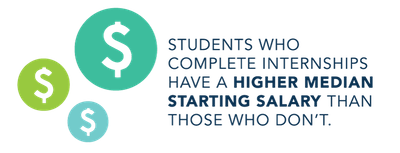 Everyone has to write. Everyone has to communicate. An English student, when brought up well like UAB's students are, emerge with a good grasp of research, writing, editing, communication, and reflection. They learn to take their idealism and make it a reality.
Everyone has to write. Everyone has to communicate. An English student, when brought up well like UAB's students are, emerge with a good grasp of research, writing, editing, communication, and reflection. They learn to take their idealism and make it a reality.
Kayla McLaughlin: Some liberal arts students are impractical, sure. But so are lots of other people. Idealistic and romantic? I hope so! The liberal arts are what put meaning in everyone's world. Where would we find the whimsy, magic and meaning without the liberal arts?

Daniel Siegel: Students weren't coming to us for help, and that was a problem. They seemed to see their studies as one thing and their career as the next thing. When a student was ready to graduate, and [faculty members in the Department of English] would ask him or her what was coming next, the student would often say, “I need to start thinking about that.”
The great strength of an English major—its versatility—is also the source of dilemmas for a number of our students. English has many career applications, which means that there's no single career track that is the obvious choice for our graduates. Also, the intellectual rewards of English (and other majors as well) can cause students to underrate, or not even to be aware of, the practical skills they're learning.
In the Career Services office and with the CAS Advisors, our students have tremendous resources to help them benefit from college and prepare their careers. But students don't always use those resources adequately. Also, as the people in the classrooms with our students, professors are uniquely qualified to say, “Here's what you've learned in our classes; here's why it matters; here are some things you can do well that you might not even recognize as talents you have.” That's why we felt it was important for our faculty to be directly involved in career mentoring.
The impact of these efforts had been immediate. Coming out of the mentoring sessions and career events, students often say they have new ideas about what they might do after college, and we can frequently point them to specific resources or people to talk to. That's really what we're after.
Elizabeth Simmons: A big part of our job is to help our students articulate to themselves what their skills are. We are in a competency-based market; employers want to know what applicants bring to the table. But our students don't always understand what they have learned how to do. They can upload their resumes and we can review them in a 101 session we call Motivational Interviewing where we go over those resumes and help them see for themselves what they've actually done.
For example, we had a student who had been very involved in an organization on campus and he had listed that under his extra-curricular activities. But as we asked him more questions about his role in the club, we found out that he had had a leading role in building the organization, marketing it, growing it, and developing the social media presence. We were able to talk him through that and help him see that he had gained real skills that should be included on his resume: leadership, team building, branding, and social media communications. They have to practice talking about what they've done, and that's what we offer in Career and Professional Development.
We also work with faculty to design career fairs that can put their students in front of professionals in specialty fields. Last year we had a Liberal Arts and Social Sciences Career Day at the Abroms-Engel Institute for the Visual Arts and invited 30 employers to come. Our students were able to interact with them and hear first-hand that there were opportunities out there, sometimes in careers they might not have considered. And the employers could meet our talented students and learn more about what they could offer to their organization.
Brodie Foster: This is one of the things I felt most supported in when I was a student. When I graduated, I had a resume and portfolio I was proud of and a prepared ‘elevator pitch' on why I was hirable and a valuable potential employee.
I feel like you're as prepared as you choose to be, and there's a lot of work that you just have to do yourself (which is true of all majors, I think). However, I found plenty of opportunities to learn how to prepare myself for the workforce within CAS and the English department specifically.
I did the Capstone internship where Dr. Cynthia Ryan taught a professional development course that dovetailed with my internship in my senior year. In that Capstone, we had resumé workshops, interview tips, reflections on career goals, and how best to present ourselves as marketable job applicants. There is a huge stigma about liberal arts students not having any concrete skills, so you have to work a little harder to prove that you're hirable, but our English department did a fantastic job of that for me.
Kayla McLaughlin: I think this statement only is true for those who just attend class and don't do anything outside of that. You can't limit your college experience to the classroom and be prepared for a real-world job, because a classroom is not like the real world. Anyone can go into an interview and use what they've learned in poetry or flash fiction to speak about their own individual abilities, but that's just a cherry on top. Employers care about how much you did outside of class. How did a student combine their schooling with extracurriculars and internships to create their portfolio? How much research did they do prior to the interview? Essentially, how much did they care about what they wanted? UAB gives ample opportunity to do more, talk to the career center, talk to professors who know many more people and and have a lot experience more than you have. I think the College's liberal arts faculty is one of the best things about the university, and the students should take advantage of that. UAB gives students ample opportunity to do what they love and gain experience, most of the time without even stepping off campus. I think the people who disagree just aren't looking hard enough and aren't talking to professors, who are the number-one source for career help.
Daniel Siegel: We've got to get our own students enthusiastic about courses in other disciplines. The job environment is difficult for all students these days, and over the course of their working lives, most college graduates will change jobs frequently and may even change careers. So it's absolutely crucial that we push our students to circulate throughout the university—what you learn by taking challenging courses in different fields is much more important than what you learn in a major. The power of a university education is that it gets you to be intellectually flexible, and every employer will tell you that they want to hire people with a diversity of skills and interests. I really worry about the degree to which students, and to some extent faculty and advisors, treat the major as the point of college—it hurts our students when they go out into the world and have to navigate complex work environments.

We reach out to alumni a year after they've left the department and ask them to share their career experiences and advice with current students. Occasionally, we might connect one of our current students with a graduate who is working in a career field the student is interested in. I've put together a website that is a collection of job-related resources, both inside and outside of UAB, and information about previous graduates of the department, including their advice to current students.
Brodie Foster: Everyone always thinks that classes like art or creative writing are easy classes to breeze through and have no idea the kind of hard work it takes to do them well. There is an unreal amount of critical thinking, work shopping, communication, and reflection that goes into doing these things well. There's a certain impracticality to creativity, but we learn to balance that idealism with the articulation and execution of our ideas. We learn to take something from a concept to reality and really get into the process of completing a project.

Kayla McLaughlin: Some liberal arts students are impractical, sure. But so are lots of other people. Idealistic and romantic? I hope so! The liberal arts are what put meaning in everyone's world. Where would we find the whimsy, magic and meaning without the liberal arts?
MYTH 4: UNIVERSITIES ARE NOT DOING THEIR PART TO PREPARE STUDENTS FOR CAREERS

Daniel Siegel: Students weren't coming to us for help, and that was a problem. They seemed to see their studies as one thing and their career as the next thing. When a student was ready to graduate, and [faculty members in the Department of English] would ask him or her what was coming next, the student would often say, “I need to start thinking about that.”
The great strength of an English major—its versatility—is also the source of dilemmas for a number of our students. English has many career applications, which means that there's no single career track that is the obvious choice for our graduates. Also, the intellectual rewards of English (and other majors as well) can cause students to underrate, or not even to be aware of, the practical skills they're learning.
In the Career Services office and with the CAS Advisors, our students have tremendous resources to help them benefit from college and prepare their careers. But students don't always use those resources adequately. Also, as the people in the classrooms with our students, professors are uniquely qualified to say, “Here's what you've learned in our classes; here's why it matters; here are some things you can do well that you might not even recognize as talents you have.” That's why we felt it was important for our faculty to be directly involved in career mentoring.
The impact of these efforts had been immediate. Coming out of the mentoring sessions and career events, students often say they have new ideas about what they might do after college, and we can frequently point them to specific resources or people to talk to. That's really what we're after.
Top 10 Things Employers Look for in a Job Candidate1. Ability to verbally communicate with persons inside and outside the organization 2. Ability to work in a team structure 3. Ability to make decisions and solve problems 4. Ability to plan, organize and prioritize work 5. Ability to obtain and process information 6. Ability to analyze qualitative data 7. Technical knowledge related to the job 8. Proficiency with computer software programs 9. Ability to create and/or edit written reports 10. Ability to sell to or influence others (source: 2016 Job Outlook, ©National Association of Colleges and Employers) |
For example, we had a student who had been very involved in an organization on campus and he had listed that under his extra-curricular activities. But as we asked him more questions about his role in the club, we found out that he had had a leading role in building the organization, marketing it, growing it, and developing the social media presence. We were able to talk him through that and help him see that he had gained real skills that should be included on his resume: leadership, team building, branding, and social media communications. They have to practice talking about what they've done, and that's what we offer in Career and Professional Development.
We also work with faculty to design career fairs that can put their students in front of professionals in specialty fields. Last year we had a Liberal Arts and Social Sciences Career Day at the Abroms-Engel Institute for the Visual Arts and invited 30 employers to come. Our students were able to interact with them and hear first-hand that there were opportunities out there, sometimes in careers they might not have considered. And the employers could meet our talented students and learn more about what they could offer to their organization.
Brodie Foster: This is one of the things I felt most supported in when I was a student. When I graduated, I had a resume and portfolio I was proud of and a prepared ‘elevator pitch' on why I was hirable and a valuable potential employee.
I feel like you're as prepared as you choose to be, and there's a lot of work that you just have to do yourself (which is true of all majors, I think). However, I found plenty of opportunities to learn how to prepare myself for the workforce within CAS and the English department specifically.
I did the Capstone internship where Dr. Cynthia Ryan taught a professional development course that dovetailed with my internship in my senior year. In that Capstone, we had resumé workshops, interview tips, reflections on career goals, and how best to present ourselves as marketable job applicants. There is a huge stigma about liberal arts students not having any concrete skills, so you have to work a little harder to prove that you're hirable, but our English department did a fantastic job of that for me.
Kayla McLaughlin: I think this statement only is true for those who just attend class and don't do anything outside of that. You can't limit your college experience to the classroom and be prepared for a real-world job, because a classroom is not like the real world. Anyone can go into an interview and use what they've learned in poetry or flash fiction to speak about their own individual abilities, but that's just a cherry on top. Employers care about how much you did outside of class. How did a student combine their schooling with extracurriculars and internships to create their portfolio? How much research did they do prior to the interview? Essentially, how much did they care about what they wanted? UAB gives ample opportunity to do more, talk to the career center, talk to professors who know many more people and and have a lot experience more than you have. I think the College's liberal arts faculty is one of the best things about the university, and the students should take advantage of that. UAB gives students ample opportunity to do what they love and gain experience, most of the time without even stepping off campus. I think the people who disagree just aren't looking hard enough and aren't talking to professors, who are the number-one source for career help.


